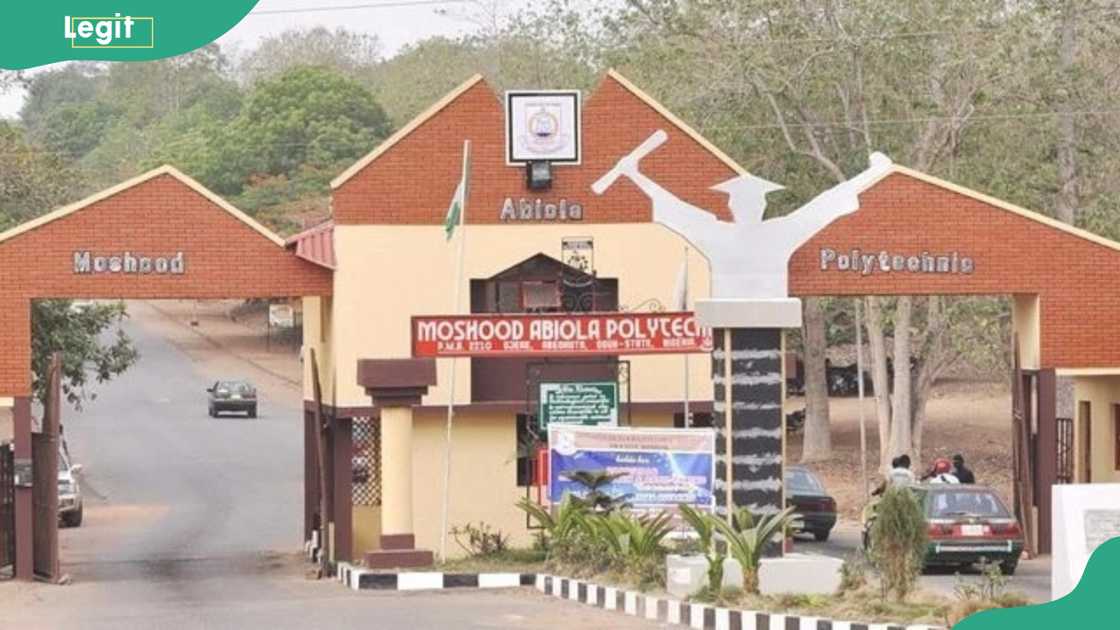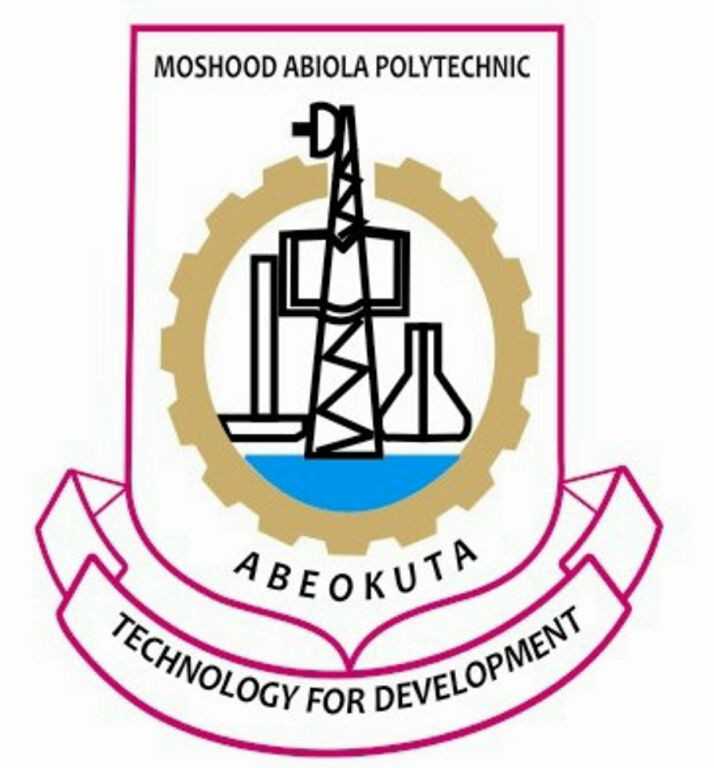Moshood Abiola Polytechnic is a prestigious institution based in Abeokuta, Ogun State. The polytechnic's quality education and hands-on experience make it a top choice for students in Nigeria. This post explores the Moshood Abiola Polytechnic courses, highlighting the wide range of academic programmes available and their associated school fees.

TABLE OF CONTENTS
- Moshood Abiola Polytechnic courses
- How much are full-time school fees in MAPOLY?
- How do you gain admission into MAPOLY?
- 1. Accountancy
- 2. Business Administration
- 3. Marketing
- 4. Mass Communication
- 5. Office Technology Management
- 6. Science Laboratory Technology
- 7. Food Technology
- 8. Hospitality Management
- 9. Leisure and Tourism
- 10. Pharmaceutical Technology
- 11. Computer Science
- 12. Statistics
- 13. Quantity Surveying
- 14. Surveying and Geo-Informatics
- 15. Building Technology
- 16. Architecture
- 17. Urban and Regional Planning
- 18. Estate Management
- 19. Civil Engineering
- 20. Computer Engineering
- 21. Electrical/Electronics Engineering
- 22. Mechanical Engineering
- 23. Diploma in Public Relations (Part-Time)
- 24. Diploma in Computer Studies (Two Semesters)
- 25. Diploma in Public Administration (DPAThree Semesters)
- 26. Diploma in Logistics and Transport (Four Semesters)
- How much is the MAPOLY acceptance fee?
- How many departments are in MAPOLY?
- Does MAPOLY do part-time courses?
The learning institution was formerly Ogun State Polytechnic but changed its name to Moshood Abiola Polytechnic in 1998. It has five schools and over 25 departments. Whether you seek a diploma, certificate, or part-time programme, the institution provides options that suit diverse career paths.
Moshood Abiola Polytechnic courses
Moshood Abiola Polytechnic offers extensive courses across various disciplines, from engineering and technology to business and applied sciences. Explore the list of the courses provided at the learning institution.
School of Environmental Studies
- Architecture
- Urban & Regional Planning
- Estate Management
- Building Technology
- Quantity Surveying
- Surveying & Geo-Informatics
- Leisure & Tourism
School of Business & Management Studies
- Accountancy
- Banking & Finance
- Business Administration
- Marketing
School of Engineering
- Department of Civil Engineering
- Department of Computer Engineering
- Department of Mechanical Engineering
- Department of Electrical/Electronic Engineering
School of Communication & Information Technology
- Mass Communication
- Office & Technology Management
- General Studies
School of Science and Technology
- Computer Science
- Food Technology
- Hospitality Management
- Leisure and Tourism
- Nutrition & Dietetics
- Pharmaceutical Technology
- Science Laboratory Technology
- Statistics & Mathematics
How much are full-time school fees in MAPOLY?
The Moshood Abiola Polytechnic fee varies depending on the programme scholars pursue and whether they are new or returning students. Below is an overview of the MAPOLY school fees.
New students (full-time)
| Programme type | ND students fees (N) | HND students fees (N) |
| Science / Technological Based Students | 135,000 | 135,000 |
| Non-Science Students | 130,000 | 130,000 |
Returning students (full-time)
| Programme type | ND students fees (N) | HND students fees (N) |
| Science / Technological Based Students | 63,000 | 63,000 |
| Non-Science Students | 58,000 | 58,000 |
New students (part-time)
| Programme type | ND students fees (N) | HND students fees (N) |
| Science / Technological Based Students | 145,300 | 145,300 |
| Non-Science Students | 140,300 | 140,300 |
Returning students (part-time)
| Programme type | ND students fees (N) | HND students fees (N) |
| Science / Technological Based Students | 88,300 | 97,300 |
| Non-Science Students | 83,300 | 92,300 |
How do you gain admission into MAPOLY?

To gain admission into the learning institution, you should meet the below requirements for various programmes.
1. Accountancy
- Five (5) credit passes, including English and Maths, at a maximum of two sittings in SSCE/NECO/WASC/GCE "O" Level or NABTEB.
- A compulsory credit in either Economics, Commerce, or Principles of Accounts.
- Two credits from subjects like Economics, Commerce, Statistics, or Sciences are required.
2. Business Administration
- Five (5) credit passes, including English and Maths, at a maximum of two sittings in SSCE/NECO/WASC/GCE "O" Level or NABTEB.
- A compulsory credit in either Economics or Commerce.
- Two additional credits from subjects like Economics, Commerce, or Sciences are required.
3. Marketing
- Five (5) credit passes, including English and Maths, at a maximum of two sittings in SSCE/NECO/WASC/GCE "O" Level or NABTEB.
- A compulsory credit in either Economics or Commerce.
- Two credits from subjects like Economics, Commerce, Statistics, or Sciences are required.
4. Mass Communication
- Five (5) credit passes, including English and Maths, at a maximum of two sittings in SSCE/NECO/WASC/GCE "O" Level or NABTEB.
- Three credits are required in Literature, Economics, History, or Sciences.
5. Office Technology Management
- Five (5) credit passes or four (4) credits in one sitting, including English (with at least a pass in Maths) in SSCE/NECO/WASC/GCE "O" Level or NABTEB.
- Other credits in subjects like Typewriting, Shorthand, Office Practice, Commerce, and Sciences are required.
6. Science Laboratory Technology
- Five (5) credit passes or four (4) credits in one sitting, including Maths (with at least a pass in English) in SSCE/NECO/WASC/GCE "O" Level or NABTEB.
- Compulsory credits in two subjects: physics, chemistry, or biology/academics. Science, and a pass in the third.
- Other credits in subjects like Economics, Geography, or Sciences are required.
7. Food Technology
- Five (5) credit passes or four (4) credits in one sitting, including Maths (with at least a pass in English) in SSCE/NECO/WASC/GCE "O" Level or NABTEB.
- Compulsory credits in Chemistry and Biology/Agric. Science, and a pass in Physics.
- Other credits in subjects like Economics, Geography, or Further Maths are required.
8. Hospitality Management
- Four (4) credit passes, including English and one for Biology/Agric. Science/Health Science, with a pass in Maths, at a maximum of two sittings in SSCE/NECO/WASC/GCE "O" Level or NABTEB.
- Two credits are required in Physics, Chemistry, or Food and Nutrition.
9. Leisure and Tourism
- Four (4) credit passes, including English and Geography, with a pass in Maths at two sittings in SSCE/NECO/WASC/GCE "O" Level or NABTEB.
- Two credits from History, Economics, Government, or Sciences are required.
10. Pharmaceutical Technology
- Five (5) credit passes or four (4) credits in one sitting, including Maths, Chemistry, Biology, and a pass in Physics and English at two sittings in SSCE/NECO/WASC/GCE "O" Level or NABTEB.
- One credit in Physics, Geography, Economics, or Agric Science is required.
11. Computer Science
- Five (5) credit passes or four (4) credits at one sitting, including Maths, Physics, and a pass in English at two sittings in SSCE/NECO/WASC/GCE "O" Level or NABTEB.
- Credits in Chemistry, Economics, Geography, or Sciences are required.
12. Statistics
- Four (4) credits, including Maths and a pass in English at one or two sittings in SSCE/NECO/WASC/GCE "O" Level or NABTEB.
- Three credits from subjects like Physics, Chemistry, Economics, or Commerce are required.
13. Quantity Surveying
- Four (4) credits, including Maths and Physics/Chemistry, with a pass in English at two sittings in SSCE/NECO/WASC/GCE "O" Level or NABTEB.
- Credits in subjects like Fine Art, Technical Drawing, Geography, or Further Maths are required.
14. Surveying and Geo-Informatics

- Four (4) credits, including Maths and Physics, with a pass in English at two sittings in SSCE/NECO/WASC/GCE "O" Level or NABTEB.
- Three credits are required from Fine Art, Technical Drawing, Geography, or Sciences.
15. Building Technology
- Four (4) credit passes, including Maths and Physics/Chemistry, with a pass in English at two sittings in SSCE/NECO/WASC/GCE "O" Level or NABTEB.
- Three credits are required from subjects like Fine Art, Metal Works, Woodwork, or Technical Drawing.
16. Architecture
- Five (5) credit passes, including English, Maths, and Physics, at two sittings in SSCE/NECO/WASC/GCE "O" Level or NABTEB.
- Two credits are required from Fine Art, Technical Drawing, Chemistry, or Geography.
17. Urban and Regional Planning
- Four (4) credit passes, including English and Maths, at two sittings in SSCE/NECO/WASC/GCE "O" Level or NABTEB.
- A compulsory credit in Physics, Chemistry, or Biology, and other credits in Economics, Geography, or Fine Arts are required.
18. Estate Management
- Five (5) credit passes, including English, Maths, and Economics, at two sittings in SSCE/NECO/WASC/GCE "O" Level or NABTEB.
- A credit in Physics, Chemistry, or Biology and one in Geography, Government, or Technical Drawing is required.
19. Civil Engineering
- To get admission in Civil Engineering, you should have five (5) credit passes, including Maths, Physics, Chemistry, and a pass in English at not more than two sittings in SSCE/NECO/WASC/GCE "O" Level or NABTEB.
- Two credits are required for Fine Art, Metalwork, Woodwork, Technical Drawing, Further Maths, Geography, or Economics.
20. Computer Engineering
- Five (5) credit passes, including Maths, Physics, Chemistry, and a pass in English at not more than two sittings in SSCE/NECO/WASC/GCE "O" Level or NABTEB.
- Two credits are required from Fine Art, Metal Work, Auto Mechanics, Further Maths, Statistics, or Economics.
21. Electrical/Electronics Engineering
- Five (5) credit passes, including Maths, Physics, Chemistry, and a pass in English at not more than two sittings in SSCE/NECO/WASC/GCE "O" Level or NABTEB.
- Two credits are required from Fine Art, Metal Work, Technical Drawing, Auto Mechanics, Further Maths, or Economics.
22. Mechanical Engineering
- Five (5) credit passes, including Maths, Physics, Chemistry, and a pass in English at not more than two sittings in SSCE/NECO/WASC/GCE "O" Level or NABTEB.
- Two credits are required from Biology/Agric Science, Statistics, Fine Art, Metal Work, or Further Maths.
23. Diploma in Public Relations (Part-Time)
- Designed for practising Public Relations Officers.
- Four (4) credit passes, including English in SSCE/NECO/WASC/GCE 'O' Levels or equivalent, at no more than two sittings, are required.
- University or HND graduates or their equivalent are acceptable.
24. Diploma in Computer Studies (Two Semesters)
- Four (4) credit passes, including Maths and a pass in English at not more than two sittings in SSCE/NECO/WASC/GCE 'O' Levels, are required.
- Teachers Grade II, C & G, or university/polytechnic graduates with logical reasoning bias are also acceptable.
25. Diploma in Public Administration (DPAThree Semesters)
- Open to candidates with a Bachelor's degree, HND, ND, NCE, or at least five years of relevant experience in administration.
- Candidates must have four (4) credits, including English in SSCE/NECO/WASC/GCE 'O' Levels or equivalents.
26. Diploma in Logistics and Transport (Four Semesters)
- Four (4) credits, including Maths and a pass in English at not more than two sittings in SSCE/NECO/WASC/GCE 'O' Levels or NABTEB, are required.
- Mature candidates over 25 years old with experience may also be considered.
How much is the MAPOLY acceptance fee?

The acceptance fee of Moshood Abiola Polytechnic is ₦50,500. This fee is mandatory for all newly admitted students to confirm their admission. It must be paid before the student can proceed with registration and other admission formalities.
How many departments are in MAPOLY?
Moshood Abiola Polytechnic (MAPOLY) has over 25 departments across five main faculties, offering various science, technology, management, and the arts courses.
Does MAPOLY do part-time courses?
MAPOLY offers part-time courses for students who wish to balance education with other commitments. These programmes are available in select departments.
The Moshood Abiola Polytechnic courses cover various disciplines, offering students practical and theoretical knowledge in engineering, business, technology, and applied sciences. With an emphasis on hands-on learning and affordable tuition, these courses prepare students for careers in both public and private sectors.
Legit.ng recently published College of Nursing Obohia cut-off mark, courses and school fees. The College of Nursing and Health Sciences Obohia-Ndoki prides itself on being an institution of distinction.
The school aims to contribute to developing quality healthcare by providing world-class education in healthcare and other health sciences. Read on to unveil the College of Nursing Obohia cut-off marks, admission requirements, courses and school fees.
.. Source: Legit.ng



